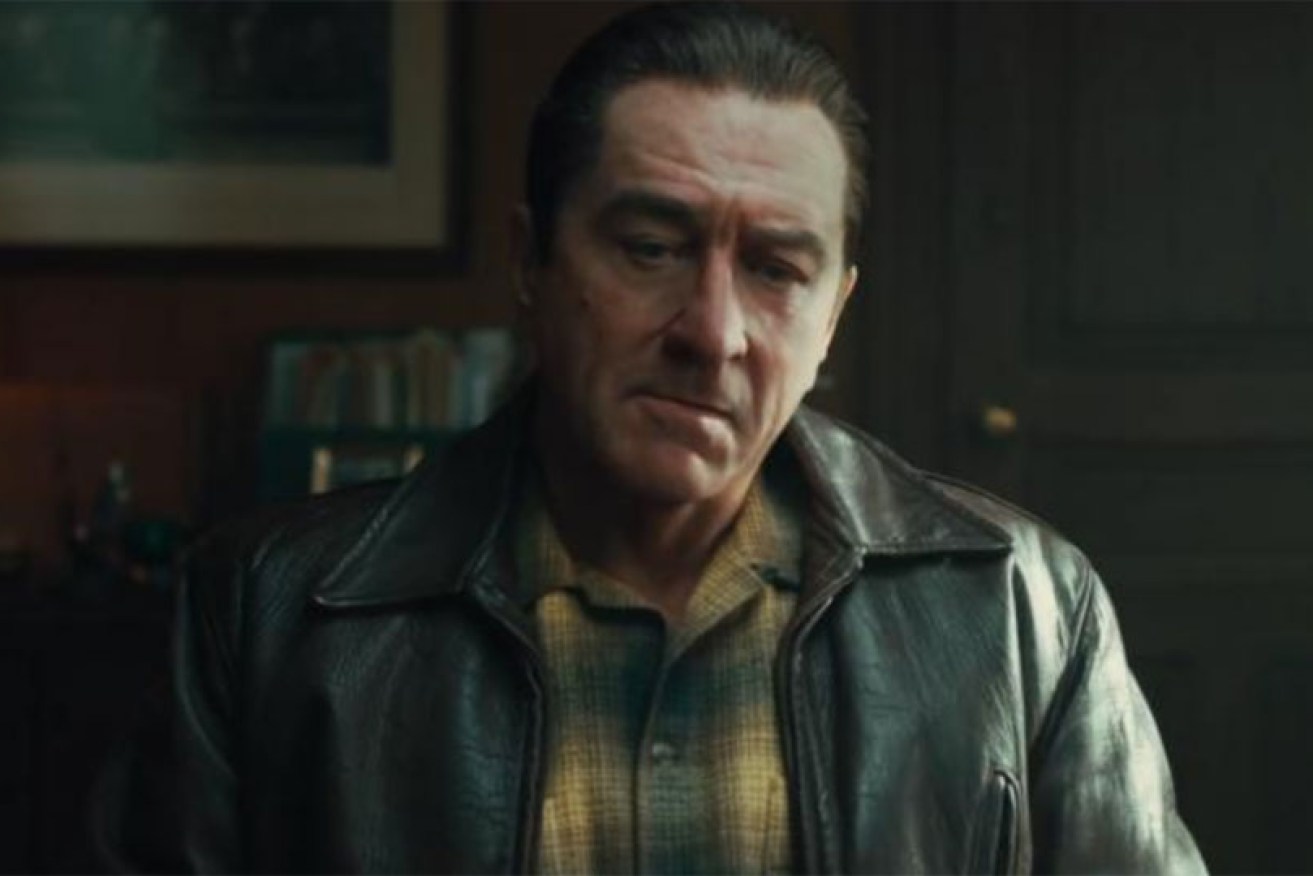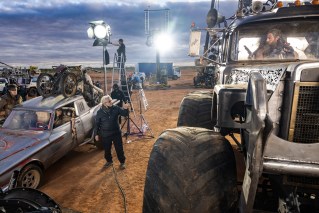The Irishman is stuck in the past, just like director Martin Scorsese


The magic of Robert De Niro's face in The Irishman doesn't totally extend to his performance. Photo: Netflix
It feels like we’ve been reading forever about mobster-flick maestro Martin Scorsese’s The Irishman, now screening at selected cinemas ahead of its Netflix premiere on November 27.
The ‘king of the tracking shot’ (who famously denounced watching films on the small screen) defended his decision to deal with Netflix by claiming no studio was able to finance the budget required.
So is the film any good?
Firstly, The Irishman is three hours and thirty minutes long – three hours and thirty minutes! – making it Scorsese’s longest feature film and, at around the $200 million mark, also his most costly.
This runtime will work fine for Netflix’s binge-watching culture. But cinephiles among us who want to live by Scorsese’s instruction that film should be a “singular experience, ideally with an audience” should bring snacks, water, and maybe notify loved ones.
The Irishman has all the trademarks of a Scorsese masterpiece: dangerous and violent gangsters, a disjointed temporal narrative that skips back and forth in time, a weathered and world-weary narrator, long tracking shots and freeze-frames with occasional title cards.
There’s beautifully intimate close-ups of food, glamorous and mistreated women, and a New York setting because, of course.
The film is a fictionalised account of real-life mobster and hitman Frank ‘The Irishman’ Sheeran and is drawn from Charles Brandt’s true crime memoir I Heard You Paint Houses (2004.)
Scorsese’s longtime favorites Robert De Niro and Al Pacino play Sheeran and charismatic union leader Jimmy Hoffa respectively. So keen was the director to keep De Niro onscreen that the actor plays Sheeran in all the film’s time periods thanks to digital de-ageing technology which has attracted both props and derision.
While it’s an impressive feat to return cinema’s greats to their youth (or thereabouts), the effect is a little uncanny.
Age is much more than plumping up cheeks and erasing wrinkles. It’s in the voice, gait and comportment of the actor and it’s sometimes difficult to reconcile the slow-moving de-aged De Niro in The Irishman with the intensely energetic performances of his actual youth in classics such as Taxi Driver (1976), New York New York (1977), and Raging Bull ( 1980).
This isn’t De Niro’s finest hour (or 3.5 hours), maybe owing to the po-faced character traits of Sheeran. His reserve is particularly pronounced alongside Pacino’s exuberant performance.
But it’s Joe Pesci’s portrayal of mafia boss Russell Bufalino that really steals the show. Pesci’s Bufalino is disarmingly polite while masterfully engineering gang hits, bribes, and acts of extortion.
The Irishman also features exceptionally strong performances from a supporting cast including Harvey Keitel, Anna Paquin, Ray Romano and Stephen Graham.
It’s a shame these peripheral characters aren’t further developed, in particular, the storyline featuring Sheeran’s daughter Peggy (first played by Lucy Gallina and later by Paquin).

Oscar winner Anna Paquin deserves more screen time in The Irishman. Photo: Netflix
After witnessing her father viciously attack a shop owner, Peggy becomes increasingly distrustful of him and ultimately becomes a figure of morality against which her father’s violent behavior is measured.
One of the primary criticisms levelled at Scorsese’s filmography is the over-representation of male characters at the expense of underdeveloped female ones.
They’re often defined solely by their relationship to the man – wife, mother, daughter, love interest – and are nearly always violently mistreated.
If Scorsese has wanted to distance himself from accusations of misogyny and erasure, his latest comments that addressing the imbalance would be “a waste of everybody’s time” haven’t helped.
It’s disappointing that Scorsese, who has offered cinema exceptional female characters like Francine (Liza Minnelli, New York New York) , Alice (Ellen Burstyn, Alice Doesn’t Live Here Anymore), and Ginger McKenna (Sharon Stone, Casino), cannot understand how exploring the interiority of female narratives might give greater depth to his stories.
Like its director, The Irishman seems stuck in the past, re-animating the same gangster narratives of his glory days and dragging now veteran stars back for one last job.
For a film that clocks in at 209 minutes and still doesn’t properly develop any of the female characters, it does seem like a waste of everybody’s time.








